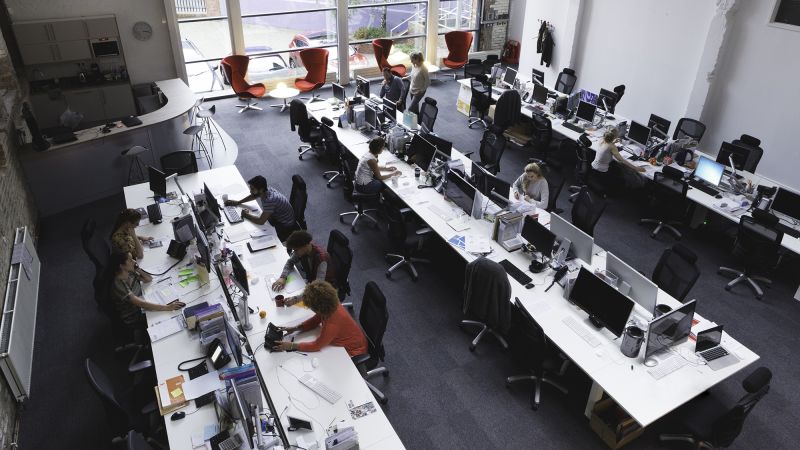The president of Cisco, Jeetu Patel, has publicly challenged claims that artificial intelligence (AI) will lead to widespread job losses, particularly among entry-level positions. Speaking at the Ai4 conference in Las Vegas, Patel dismissed warnings from tech leaders, including Dario Amodei, CEO of Anthropic, who suggested that AI could increase unemployment rates to as high as 20% and eliminate a significant number of white-collar jobs.
Patel emphasized that he does not believe humans will become obsolete due to AI advancements. “I reject the notion that humans are going to be obsolete in like five years,” Patel stated. He acknowledged the potential for disruption but insisted that rather than eradicating jobs, AI will require workers to adapt and acquire new skills to thrive in an evolving job market.
The conversation around AI and employment is particularly pressing given the current economic landscape. Recent data indicates a decline in entry-level hiring, with a reported 23% drop from March 2020 to May 2025, surpassing the 18% decline in overall hiring during the same period, according to LinkedIn. The Class of 2025 is facing the most challenging job market for new college graduates in decades, with unemployment rates for recent graduates exceeding the national average for the first time since tracking began in 1980, as noted by Oxford Economics.
Patel’s Perspective on Job Dynamics
Patel articulated his concerns regarding the idea that eliminating entry-level jobs would benefit companies in the long term. He argued that young workers bring fresh perspectives and understanding of emerging technologies, which are crucial for innovation. “If you just say, ‘I’m going to eradicate all entry-level jobs,’ that’s the stupidest thing a company can do in the long term,” he asserted.
He also pointed out that in some cases, extensive experience can hinder progress. Patel frequently engages with younger employees and interns, stating, “I learn a lot from people who’ve just gotten out of college because they have a fresh and unique perspective.” He believes that combining this fresh insight with experienced guidance can lead to significant advancements within organizations.
Despite Patel’s optimistic outlook, some economists warn of early indicators suggesting that AI may already be impacting entry-level job opportunities. Matthew Martin, senior US economist at Oxford Economics, noted that employment in sectors particularly vulnerable to AI, such as computer science and mathematics, has dropped by 8% since 2022 for recent graduates, while job stability for older workers in those fields has remained largely unchanged.
The Future of Work in an AI Era
The implications of AI on employment extend beyond mere job displacement. Alan Ranger, vice president of marketing at Cognigy, highlighted that repetitive tasks, such as data entry, are most at risk of automation. He stated, “The less interesting clerical jobs will go away. They will be automated. And if you don’t automate, you’ll go out of business.” Cognigy, which provides AI agents for customer support, has noted the efficiency gains from AI technology, particularly in crisis situations, such as when Lufthansa had to manage mass flight cancellations due to a strike.
Ranger acknowledged that while AI can enhance productivity, it will not entirely replace human roles. “Companies won’t massively lay off customer support workers because humans still need to manage the AI agents,” he explained. However, he admitted that the industry will see a shift in hiring practices, focusing on different roles as the nature of work evolves.
Patel concluded by stressing the responsibility of the tech industry to facilitate a smooth transition to an AI-driven future. He pointed out the importance of retraining and reskilling workers, highlighting the need for collaboration between the tech sector, governments, and educational institutions. “If we don’t, you will create some level of pain in society, and we want to make sure we avoid that,” Patel stated, underscoring a commitment to addressing the societal impacts of technological advancement.







































































